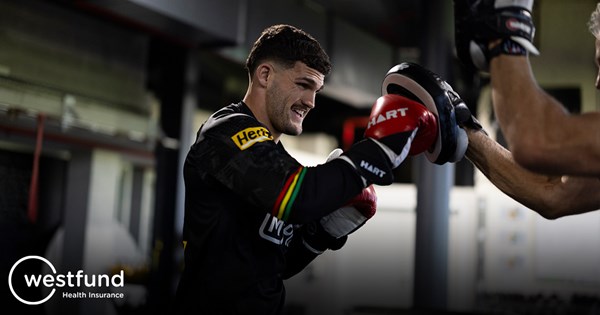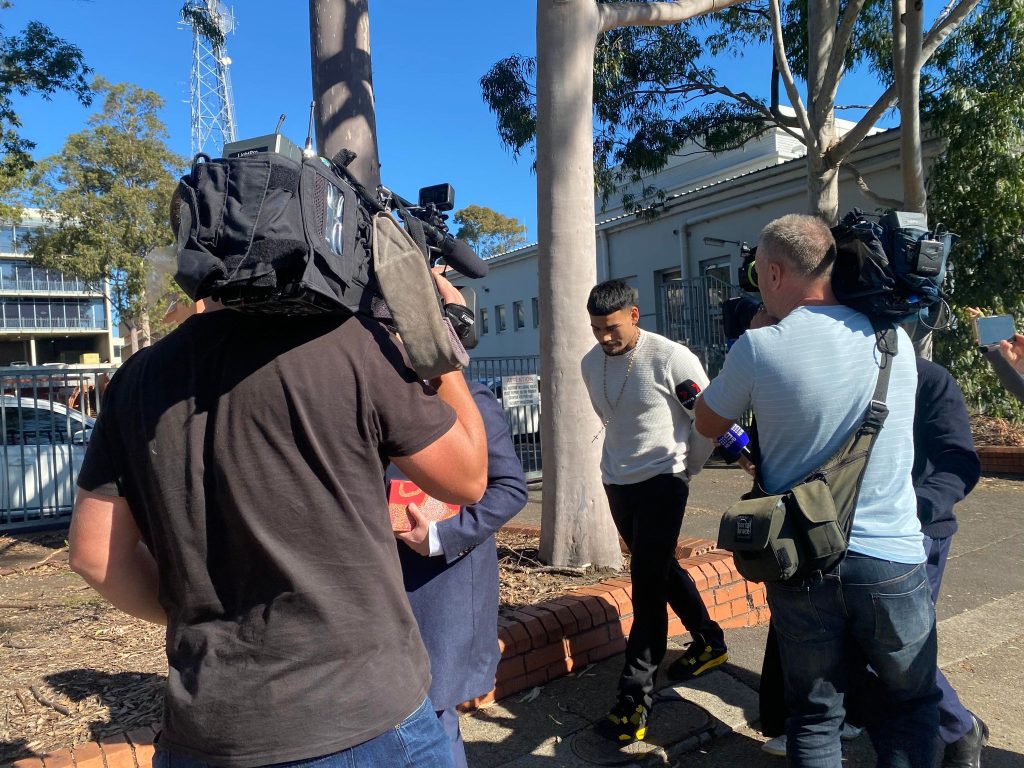No-fault stand-down policy isn’t perfect, but NRL has little alternative
ByDarren Kane
Sydney Morning Herald
May 25, 2024 — 5.29am
A decade ago, a then 22-year-old rugby league player named Kirisome Auva’a made his NRL debut for South Sydney. By season’s end in 2014, he was taking the field in a grand final and scoring a try as part of the Rabbitohs’ rout of the Bulldogs.
Yet depending on your perspective, Auva’a arguably shouldn’t have been in the same time zone as Sydney that Sunday night in the first week of October.
Roughly six months before that grand final, Auva’a entered guilty pleas to a Melbourne criminal court in answer to an array of charges relating to a former girlfriend. Specifically, a withering display of fury culminating in Auva’a bashing his victim to the ground, then picking her up again and flinging her into a closed garage door.
Notwithstanding his admissions, the court didn’t pass sentence before the grand final. Correspondingly, and in accordance with the procedures in place in rugby league’s Palaeolithic Era, the NRL refrained from imposing any sanction on him and Auva’a remained free to play and claim his grand final winner’s ring.
What if he’d been a school teacher, politician or police officer? Do you reckon people engaged in those spheres should be permitted to work, under the cloud of being charged, until their case is finished?
Despite the repugnancy of the player’s admitted actions, the NRL’s own convoluted processes in place at that time did, effectively, bind it to do pretty much nothing until the criminal courts had passed sentence on Auva’a. Even after he’d pleaded guilty.
About a month after the 2014 grand final, Auva’a was finally sentenced. He was placed on a two-year bond and fined an amount he could easily afford, but Auva’a was spared having a criminal conviction recorded against him. After that, the NRL banned the player for not less than nine months.
Had these events instead occurred in 2024, it’s probably the NRL’s discretionary powers would have been activated, to excise Auva’a from the sport on a no-fault basis, as soon as he pleaded guilty – or even earlier.
The purpose of this history lesson is to illustrate this point. Far from the NRL’s no-fault stand-down rules being neither an effective deterrent nor a fair punishment, those rules aren’t designed to be either of those things.
Standing a player down on a no-fault basis definitely isn’t fair, when finalising contested charges might take years. Just ask St George Illawarra’s Jack de Belin. De Belin missed three seasons after the Director of Public Prosecutions opted in 2021 not to pursue a third trial for him on sexual assault charges after two previous attempts to convict him resulted in hung juries.
It’s fraught, also, to attempt to decipher how many rugby league players might refrain from committing crimes as a result of potentially being stood down from playing and training. In any event, whether the spectre of being stood down – on full pay, on a no-fault basis – operates as an effective deterrent is the wrong barometer.
Because if the prospect of jail isn’t an effective deterrent for those with a predilection for doing crimes what else could be?
But distilled down, the reality actually lies in answering this question: can you reasonably argue in 2024 that it’s preferable to allow players, in situations akin to Auva’a’s circa 2014, to continue playing until their day in court?
Doesn’t that skew the rules seriously in favour of the subject player, to the material detriment of the sport as a whole?
We live in a society struggling with a domestic violence epidemic. Do you believe rugby league players ought to be allowed to keep working if they’re accused of serious criminal conduct, or any criminal conduct directed against vulnerable people?
Is that a better way to handle such matters, as opposed to those conferred with decision-making powers reasonably determining that a person should be removed from the game pending the finalisation of their criminal matters, due to the specific nature and abhorrence of the matters of which they are accused?
In 2024, isn’t the no-fault stand-down policy the better way to deal with professional players accused of crimes directly resulting from their interactions with women, as opposed to hollering “six again, play on” on repeat until a court hands down a verdict?
Take the Panthers’ Taylan May, for example. He’s absolutely deserving of, and entitled to, the presumption that he’s innocent of the charges he was arrested on last week. There mustn’t be any qualification to that statement, nor should there be.
But one must temper any enthusiasm by at least noting that the police shouldn’t lay charges at all, unless they’ve first determined that there’s sufficient evidence available to suspect an offence has been committed (that principle doesn’t always restrain the police of course, but it’s how the system is meant to work).
The balance of convenience in 2024 must enable the NRL to exclude from the game, on a no-fault basis, players who are charged with serious criminal offences and crimes against alleged female victims.
Because if you don’t accept that as being the reasonable approach to take, on a no-fault and no-presumptions basis, it must follow that you do accept that if a player is charged, but only charged with crimes of a particularly heinous or revolting nature, they should nonetheless be allowed to play on – provided they’re granted bail – pending the outcome of the criminal process.
The NRL’s no-fault stand-down rule is rooted in the premise that, once a player is charged with a serious criminal offence, their continued participation in the NRL will damage the image, interests and welfare of the game. That damage is manifest, although the game is not inoculated by excluding the player.
The NRL’s rules provide for a self-executing and immediate standing down of a player charged with a crime carrying maximum jail time of 11 years or more; however, the residual discretion exists to stand down players charged with offences involving violence against women or other particular elements. Standing down a player operates until all criminal proceedings are concluded.
Five years ago, right before the NRL introduced its no-fault stand-down provisions, I opined in this column that it was no longer right for players to remain in professional rugby league while pending the outcome of any serious criminal charges against them. I remain of that view.
Yes, innocent players might be caught when trawling with a wide net. Yes, cases of police and prosecutorial misconduct happen. And yes, the attempt to excise big-name players from the game if they’re charged with an offence can actually make them all the more omnipresent.
Moreover, the actual consequences of applying the rule can be rudely disproportionate and unreasonable. When applied, the rule is inherently unfair in how affected clubs are compensated, with regard to putting them back in the position they were, but for their player being removed.
The rule can also be more unfair for some players. A 27-year-old player, earning a seven-figure annual salary with a year to go on his contract, might be forcibly stood down under the rule. His contract might run out years before he successfully defends himself in court.
How, exactly, is it planned that a player in that position will be reintegrated? Should he be compensated for monetary loss?
With all of those matters noted, nobody says the no-fault stand-down rules are fair. They aren’t intended to be fair. However, they are the lesser evil, and necessary.
Sports news, results and expert commentary. Sign up for our Sport newsletter.
NRL is Live and Free on Channel 9 & 9Now
You can argue the stand-down rules are neither an effective deterrent nor a fair punishment – but that’s not the point of them.

www.smh.com.au


 westernweekender.com.au
westernweekender.com.au


westernweekender.com.au

www.smh.com.au
